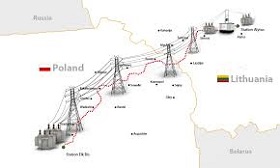Energy, EU – Baltic States, Legislation
International Internet Magazine. Baltic States news & analytics
Thursday, 18.04.2024, 07:26
Estonia does not support synchronization agreement between Lithuania, Poland
 Print version
Print version |
|---|
"Estonia's standpoint has not changed, we support a technical
solution, which has been suggested by research commissioned by the European
Commission. As this is a project first and foremost concerning energy security,
it is not possible to agree to incomplete solutions, which are more expensive
for consumers and technically uncertain," Leppiman told BNS.
Leppiman said that even though there is no agreement between all Baltic
countries and Poland, the countries are still preparing for resynchronization.
"The lack of agreement when it comes to the technical solution of the
synchronization will not hinder moving forward with the creation of capability
to be ready for situations in which the Baltic countries would have to cope
independently. In that regard, there is agreement between the Baltic countries
and activities are underway," he said.
Lithuanian Prime Minister Saulius
Skvernelis on Tuesday said he has secured firm Polish support to the
synchronization of electricity grid with continental Europe via the existing
power link, however, the remaining two Baltic states are still doubtful about
the possibility.
Estonian Minister of Economic Affairs and Infrastructure Kadri Simson has said that at least two
LitPol Link interconnections are necessary for the synchronization of the
Baltic energy systems with continental Europe via Poland to ensure the system's
reliability.
"The European Commission's Joint Research Center has analyzed the
different alternatives for the synchronization of the Baltic energy systems and
found that synchronization through two Polish utility line corridors and four
alternating current connections would be the best option in terms of both
security of supply and cost-benefit ratio," Simson told BNS in April.
Latvia's Prime Minister Maris
Kucinskis continued holding the stance that a second power link is needed
for the synchronization.








 «The Baltic Course» Is Sold and Stays in Business!
«The Baltic Course» Is Sold and Stays in Business!

